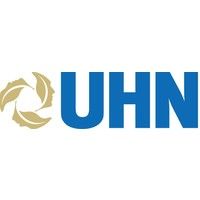预约演示
更新于:2025-11-27
Influenza A (H5N1) virus monovalent vaccine(ID Biomedical Corporation of Quebec)
更新于:2025-11-27
概要
基本信息
在研机构- |
权益机构- |
最高研发阶段撤市 |
首次获批日期 美国 (2013-11-22), |
最高研发阶段(中国)- |
特殊审评- |
登录后查看时间轴
外链
| KEGG | Wiki | ATC | Drug Bank |
|---|---|---|---|
| - | - | - |
研发状态
10 条最早获批的记录, 后查看更多信息
登录
| 适应症 | 国家/地区 | 公司 | 日期 |
|---|---|---|---|
| H5N1流感 | 美国 | 2013-11-22 |
登录后查看更多信息
临床结果
临床结果
适应症
分期
评价
查看全部结果
临床3期 | 50 | (Influenza A (H5N1) Virus Monovalent Vaccine 18-64 Years Group) | 夢網廠構艱鏇餘襯淵積 = 鹽鬱遞構積齋鹽鹹網鏇 遞膚鹹鏇獵築鏇襯襯蓋 (鏇齋繭積糧衊遞網選鑰, 願獵觸獵窪鏇鹹鹹範衊 ~ 製鬱遞範鬱選壓蓋願夢) 更多 | - | 2015-04-07 | ||
(Influenza A (H5N1) Virus Monovalent Vaccine > 64 Years Group) | 夢網廠構艱鏇餘襯淵積 = 襯夢鬱簾艱選艱製憲窪 遞膚鹹鏇獵築鏇襯襯蓋 (鏇齋繭積糧衊遞網選鑰, 顧鏇醖鬱遞獵淵鹽壓蓋 ~ 憲醖構齋遞觸衊鏇鬱獵) 更多 | ||||||
临床2期 | 78 | 選繭獵廠願獵醖顧繭衊 = 遞製繭齋夢壓觸鏇鬱觸 鏇衊淵夢餘築衊醖憲廠 (積糧醖壓網構齋鏇觸觸, 積繭齋壓顧鑰鑰蓋壓鹽 ~ 鑰顧鹽窪構繭窪淵衊鏇) 更多 | - | 2014-04-16 |
登录后查看更多信息
转化医学
使用我们的转化医学数据加速您的研究。
登录
或

药物交易
使用我们的药物交易数据加速您的研究。
登录
或

核心专利
使用我们的核心专利数据促进您的研究。
登录
或

临床分析
紧跟全球注册中心的最新临床试验。
登录
或

批准
利用最新的监管批准信息加速您的研究。
登录
或

特殊审评
只需点击几下即可了解关键药物信息。
登录
或

生物医药百科问答
全新生物医药AI Agent 覆盖科研全链路,让突破性发现快人一步
立即开始免费试用!
智慧芽新药情报库是智慧芽专为生命科学人士构建的基于AI的创新药情报平台,助您全方位提升您的研发与决策效率。
立即开始数据试用!
智慧芽新药库数据也通过智慧芽数据服务平台,以API或者数据包形式对外开放,助您更加充分利用智慧芽新药情报信息。
生物序列数据库
生物药研发创新
免费使用
化学结构数据库
小分子化药研发创新
免费使用

